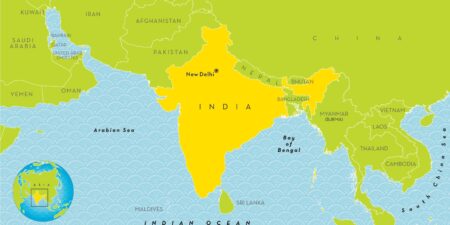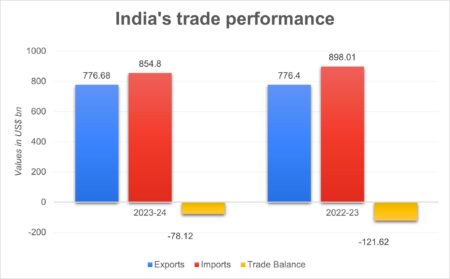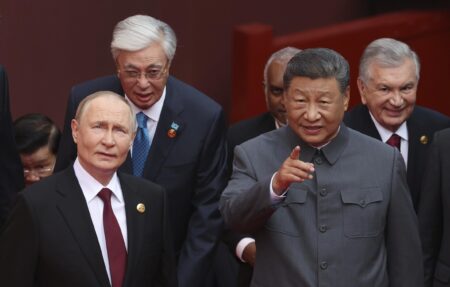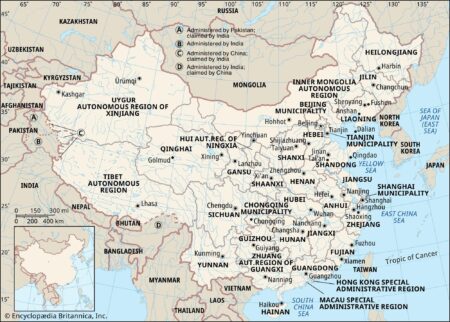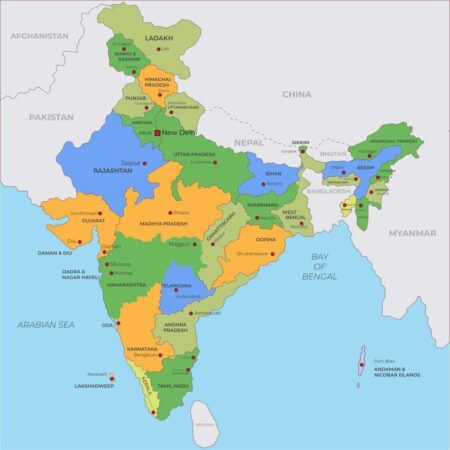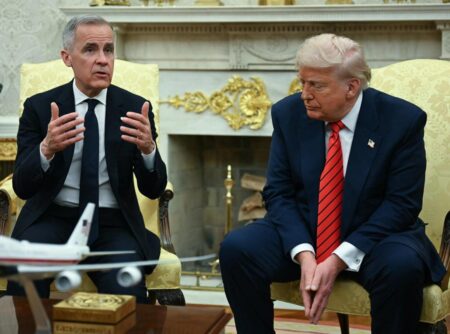Oil prices slipped on Wednesday, dragged down by persistent concerns over a global supply glut. Heightening market unease, escalating US-China trade tensions added further strain, Reuters reports. Investors are proceeding with caution as demand forecasts remain uncertain
Browsing: trade relations
Howard Lutnick doesn’t hold back behind closed doors, urging Canada to accept a secondary role to the U.S. in the auto industry if it wants to stay competitive. His candid insights reveal the ongoing hurdles that continue to challenge North American manufacturing today
Consular Conversations: Brazil – Global Atlanta” explores the exciting and evolving relationship between Brazil and Atlanta, highlighting vibrant diplomatic dialogues, promising trade opportunities, and rich cultural exchanges that are fueling stronger bonds and closer community ties
Australia is steering through challenging economic times as trade tensions with China persist. Amid these strained relations, exports and investments have taken a hit, prompting Canberra to seek out new markets and expand its economic opportunities
Germany soared during the first China Shock, leveraging its powerful manufacturing and export strengths to new heights. However, experts warn that the next wave of economic shifts driven by China’s rise could pose serious challenges to its industrial backbone
Efforts to reignite economic ties with India are gaining momentum as both nations eagerly explore thrilling new trade agreements and investment opportunities. Targeting vibrant sectors such as technology, manufacturing, and energy, these initiatives are set to turbocharge bilateral growth
China has officially launched an investigation into Mexico’s tariffs on imports from Asia, sparking concerns over rising trade barriers and unfair practices. This bold move aims to address escalating tensions in their bilateral trade relationship directly
US financial aid to Argentina offers vital short-term relief amid economic turmoil, but experts warn it falls short of addressing the country’s deep-rooted structural issues-underscoring an urgent call for bold, comprehensive domestic reforms
U.S. farmers are facing fresh challenges as China shifts its soybean purchases to Argentina, delivering a significant blow to American exports. This change underscores shifting trade dynamics and poses major hurdles for the U.S. agricultural sector, Pro Farmer reports
India’s trade scene is a dynamic tapestry, exporting a dazzling array of goods from petroleum products to colorful textiles. Meanwhile, it brings in essential items like crude oil and state-of-the-art electronics. Partnering with global giants such as the US, China, and UAE, India’s international ties are expanding at an exciting pace, reports The Observatory of Economic Complexity
China is rapidly slashing its reliance on the dollar, aggressively pushing efforts to elevate the yuan’s influence in global trade and finance. This daring move marks a pivotal moment in reshaping the future of the international monetary system
China has issued a strong warning to Mexico regarding its proposed tariff measures, accusing the country of yielding to U.S. pressure. This intensifying dispute highlights rising tensions amid ongoing trade negotiations, Bloomberg reports
India has called on BRICS nations to confront trade deficits boldly, as the bloc unites in opposition to U.S. tariffs. This decisive move underscores growing economic cooperation amid rising global trade tensions, CNBC reports
Eighty-eight postal operators worldwide have halted mail services to the US in a powerful stand against recent tariffs, sparking major disruptions in international shipments and escalating trade tensions, reports France 24
China has put off its final call in the intense canola trade standoff with key supplier Canada, Reuters reveals. This unexpected delay deepens the uncertainty for exporters caught in the midst of an already strained bilateral relationship
India, Russia, and China boast vibrant trade connections, exchanging billions of dollars in goods annually. Their major imports include energy, machinery, and electronics, while their exports range from raw materials to advanced technology-showcasing the power and strategic depth of their economic alliances
Brazil is boldly rethinking its approach in the wake of recent U.S. tariffs impacting key exports. Officials in BrasÃlia are actively exploring fresh trade strategies during ongoing negotiations, committed to protecting Brazilian industries and ensuring uninterrupted access to global markets
China has dramatically increased its soybean imports from Argentina and Uruguay, sources reveal, as it navigates ongoing trade tensions with the U.S. This bold strategy aims to diversify supply chains and overcome the hurdles created by tariffs and trade uncertainties
Canada’s counter-tariffs have rocked the very core of CUSMA, a U.S. envoy declared, accusing Ottawa of pulling the rug out from under the trade deal and stoking escalating tensions between the two countries
Mexico is poised to approve additional Brazilian meatpacking plants for exports, an official told Reuters, signaling an exciting boost in trade driven by rising demand and deepening agricultural partnerships between the two countries






